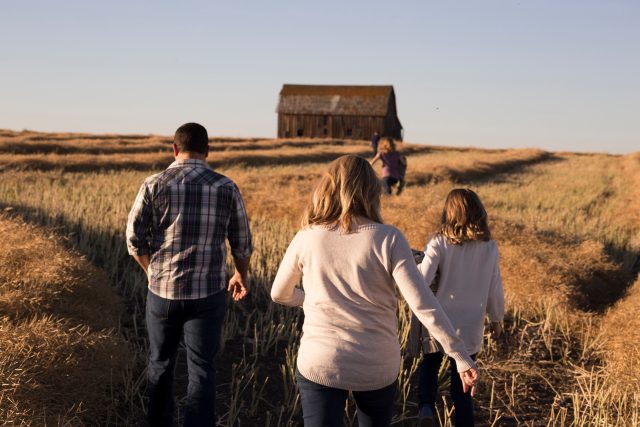Article
Small Towns Are Unique [Part 1]
Significant differences exist between small towns and larger cities when it comes to being on mission.

Significant differences exist between small towns and larger cities when it comes to being on mission. Below are four factors that significantly affect mission in small towns. Some of these have a positive effect on mission; others, a negative effect. This list isn’t comprehensive, but it’s a good starting point for analyzing and discussing the unique factors that affect mission in a small town.
Factor #1: Religious Non-Christians
Not many people in small towns are atheists, Muslim, or new agers. Instead, small towns tend to be loaded with religious non-Christians. They may not go to church very often, but they generally believe that God exists and the Bible probably has something to say about him. Small towns tend to attract and retain people who are more traditional in their outlook on life compared to those in larger cities.
Religious non-Christians are generally receptive to talking about God and church but it’s fair to say that they are also inoculated against the gospel. When a person is inoculated they receive a vaccine that is a weak strain of a virus. The body’s immune system then proceeds to adapt so that when it comes in contact with the real strain of the virus, it can easily fight it off. Similarly, religious non-Christians grow up in churches that give them a weak strain of the gospel and, consequently, they build up an immunity to the real gospel. That’s why conversations with them about the gospel and faith often end with them nodding their head in agreement with everything you say, even though they don’t truly understand what you’re talking about.
Practical Advice
Mission can never be done in the absence of prayer, but you’ll especially realize this when you’re on mission to religious non-Christians in a small town. Patience, taking a long-term approach to mission, is important. You won’t typically see many “microwave” conversions among religious non-Christians; instead, you’ll usually see “crockpot” conversions because it typically takes a long time for them to realize they have a weak strain of the gospel. But take heart, because the Holy Spirit is sovereign over the crockpot! This is why it’s wise to avoid relying too much on short presentations of the gospel. More often than not, mission among religious non- Christians takes extended examinations of the lordship of Christ and the nature of the gospel before those concepts start to click in a meaningful way.
This is why you should consider inviting people to your church, your small group, or to go through an extended one-on-one or couple-to-couple evangelistic Bible study. As we discussed earlier in this book, people are often starving for a place to belong before they believe. This belonging kind of environment should be a safe place for religious non-Christians to enter into community and see—up close and personal—how their weak strain of the gospel contrasts with the power and abundant life of the true gospel.
Religious non-Christians also tend to have a high regard for the Bible. That’s why they’re generally not freaked out by opening the Bible at church, reading it in small group, or talking about it casually. However, even though they have a high regard for the Bible, the vast majority of them don’t know what it says because they’ve rarely been encouraged to read it for themselves. Therefore, don’t be afraid to conversationally use Scripture to discuss the gospel and faith. You’ll be surprised at how effective this is!
Factor #2: Change And Conformity
For a variety of reasons, people in small towns are not typically open to change in comparison to people who live in larger cities. But this isn’t necessarily bad, because when people actually do change, they aren’t likely to change back to their old ways. This is often the case when someone becomes a Christian in a small town: they aren’t likely to turn their back on Jesus after they’ve switched their allegiance to him. Similarly, the lack of change in small towns often leads to a high degree of conformity. For better or worse, there is a relatively narrow range of acceptable behaviors, choices, and ideas that people are generally expected to adhere to in a small town. And the smaller a town is, the narrower the range! For people who have odd personalities or embrace non- traditional behaviors, it’s often difficult to be respected in the goldfish bowl of a small town. In fact, Christians like this might even have a reputation that is ultimately at odds with their mission.
Practical Advice
A veteran pastor in a small town once told me, “You can’t be weird in a small town. You need to be normal. You can’t scare people and expect to advance the gospel. You can maybe get away with being weird in Seattle or Chicago and still be great at evangelism but that doesn’t work in a small town.” If you think this might describe you, I would suggest talking with your pastor or a trusted friend and get their advice so that mission can advance your spheres of influence.
This piece is an except from a book called Small Town Mission by Aaron Morrow, which is a practical guide for helping people think and act like missionaries in small towns and rural areas.



